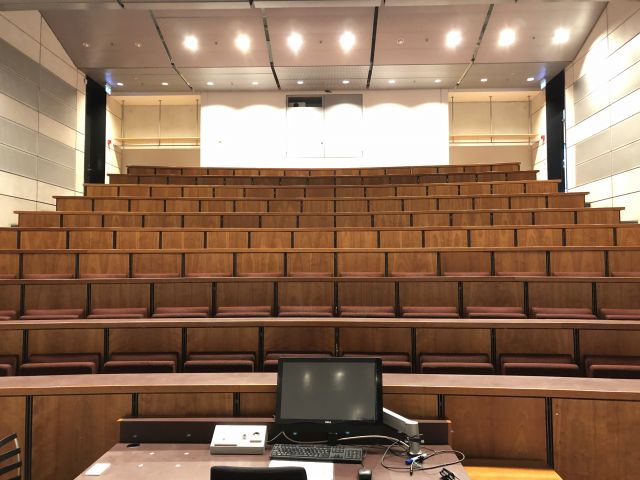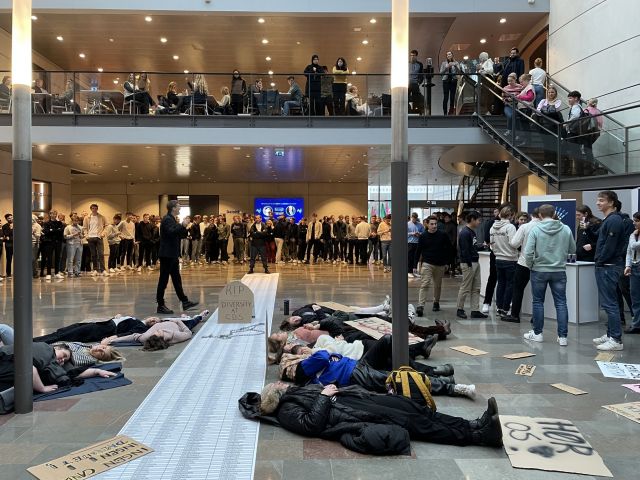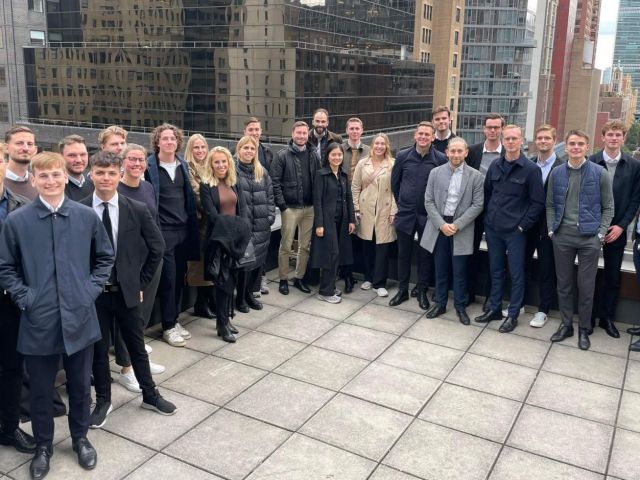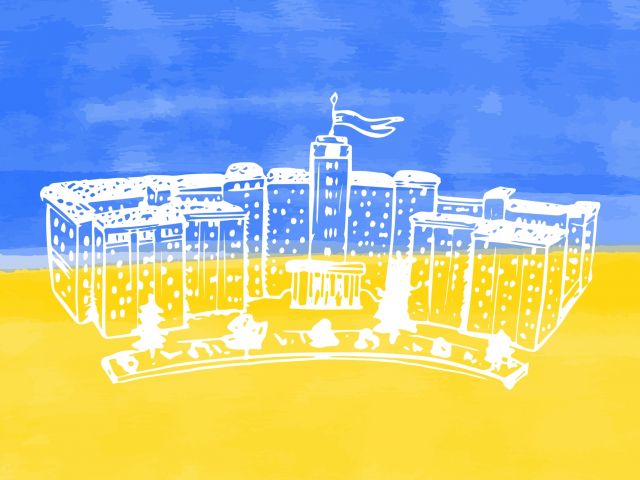Name change sets new course for department: “What we’re doing is the future of humanities”

Mitchell Dean, Professor and Head of Department, Business Humanities and Law. Photo: CBS/Anna Holte.
A rose by any other name would smell as sweet, but can a new name make a university department better? Mitchell Dean believes so. As his department changes name, he is aiming for new research collaborations and a stronger focus on the problems that businesses and society are facing. “We are giving students capacities to make a difference through their professional lives. And I think that’s what the current generation of students want: they want to contribute to positive social transformation.”
Through the stairways and corridors leading up to Mitchell Dean’s office at Porcelænshaven, the department’s old name still lingers. MPP, short for the Department of Management, Politics and Philosophy, is printed everywhere on walls and doors.
In January, the department, which he heads, changed names to Business Humanities and Law.
“There are still a million and one things to do,” Mitchell Dean says as we sit down at a round table in his office.
Above the table is a whiteboard, which is really blue, with a list of around 15 different name suggestions – the winner, and Mitchell Dean’s own favourite, at the top. They have been there for about a year. Anchoring the name change within the department and among CBS senior management and the board has been a long process.
Colleagues rightly raised the idea that there was risk that humanities, particularly in Denmark, seem to be subject to a certain amount of criticism. Often, higher education cuts seem to be in that area.
Mitchell Dean, Head of Department, Business Humanities and Law
“It took a lot of collective deliberation, perhaps a little bit of steering from the head of department,” as he puts it.
Not everyone agrees – the department has 130 faculty.
No room for commas
Before starting the interview, Mitchell Dean wants to clarify one thing: “There is no comma in the name,” he says.
He is referring to the space between business and humanities, which should be a comma-free, plain space connecting the two words. Because business humanities as a concept is central to his vision of the department and its relevance in the world.
“That’s a very crucial conceptual difference. If there’s one piece of communication I would like to get across to the rest of CBS, it’s that there’s no comma there,” he says throwing his head back with a chuckle.
“We could put an exclamation mark after or something.”
Mitchell Dean is excited about the name change because he thinks it is more than that – an opportunity to “rethink everything”.
The department’s previous name lasted for 25 years. For the past couple of years, MPP has undergone several changes. Programmes in the areas of politics and philosophy have closed, while parts of other departments were integrated into MPP.
“The brand and mission had reached a conclusion,” Mitchell Dean says.
With the new name, the department structure is also changing. The faculty will be organised in three units. One of them is Law, previously a department of its own at CBS.
“People within Law were understandably anxious when the department was merged. My response is to try to reassure them that they have a permanent and friendly home within our department.”
The other two units are called Entrepreneurship, Ethics and Leadership, and Governance, Culture and Learning, which comprise the business humanities part of the department. Though politics and philosophy are no longer in the name, they are not disappearing as areas of study but they may be organised differently.
“We wanted to get people to collaborate across disciplines. Philosophy might be reborn as a research group rather than something in the title of the department,” says Mitchell Dean.
On the intranet, researchers can now nominate research topics and themselves through a bottom-up approach. When finished, Mitchell Dean expects a total of about ten research groups to form with academics collaborating across units.
Business humanities, risky but visionary
The main controversy around the new name was the term humanities. Mitchell Dean thinks it is considered vulnerable in the public domain.
“Colleagues rightly raised the idea that there was risk that humanities, particularly in Denmark, seem to be subject to a certain amount of criticism. Often, higher education cuts seem to be in that area.”
But Mitchell Dean’s belief in the concept outweighs any concerns. The term stems from an initiative to reimagine the role of business school education and the role of humanities in it, led by the non-profit organisation the Aspen Institute, in which CBS and MPP have participated over the past ten years.
Humanities are not done in a vacuum but in relation to concrete problems that we face as societies. Businesses are a key part of those societies.
Mitchell Dean, Head of Department, Business Humanities and Law
The idea is that insights from the humanities are fundamental to the challenges society faces, and that businesses should play a role in solving those challenges.
“What it says to the rest of the world is that CBS remains a much broader business school. It says that CBS is not simply training people to be competent and highly skilled professionals, but also training them to think about fundamental challenges in society and how they, in their role, can contribute to meeting those challenges.
“I pushed very strongly for the idea of business humanities because it draws upon the long history of the humanities and its concern for the problems and challenges that humanity faces. It also suggests that humanities are not done in a vacuum but in relation to concrete problems that we face as societies. Businesses are a key part of those societies.
“In some way, I think what we’re doing is the future of humanities – harnessing these insights, forms of analysis and modes of communication to address fundamental ethical issues around sustainability, inequality and diversity.”
Mitchell Dean also thinks that the humanities and developing the capabilities to be critical, reflective, communicative, or analytical, are central to CBS strategy and the Nordic Nine vision for students.
“It’s not possible to do something innovative and forward looking without risks. We know that – it’s a business school mantra.”
As far as he knows, CBS is the first business school with a department bearing the name.
“We’re continuing a CBS tradition of not being a traditional business school but being much broader and thinking of ourselves as a business university.”




































































































































Comments